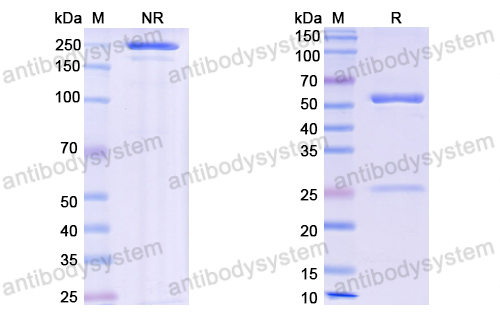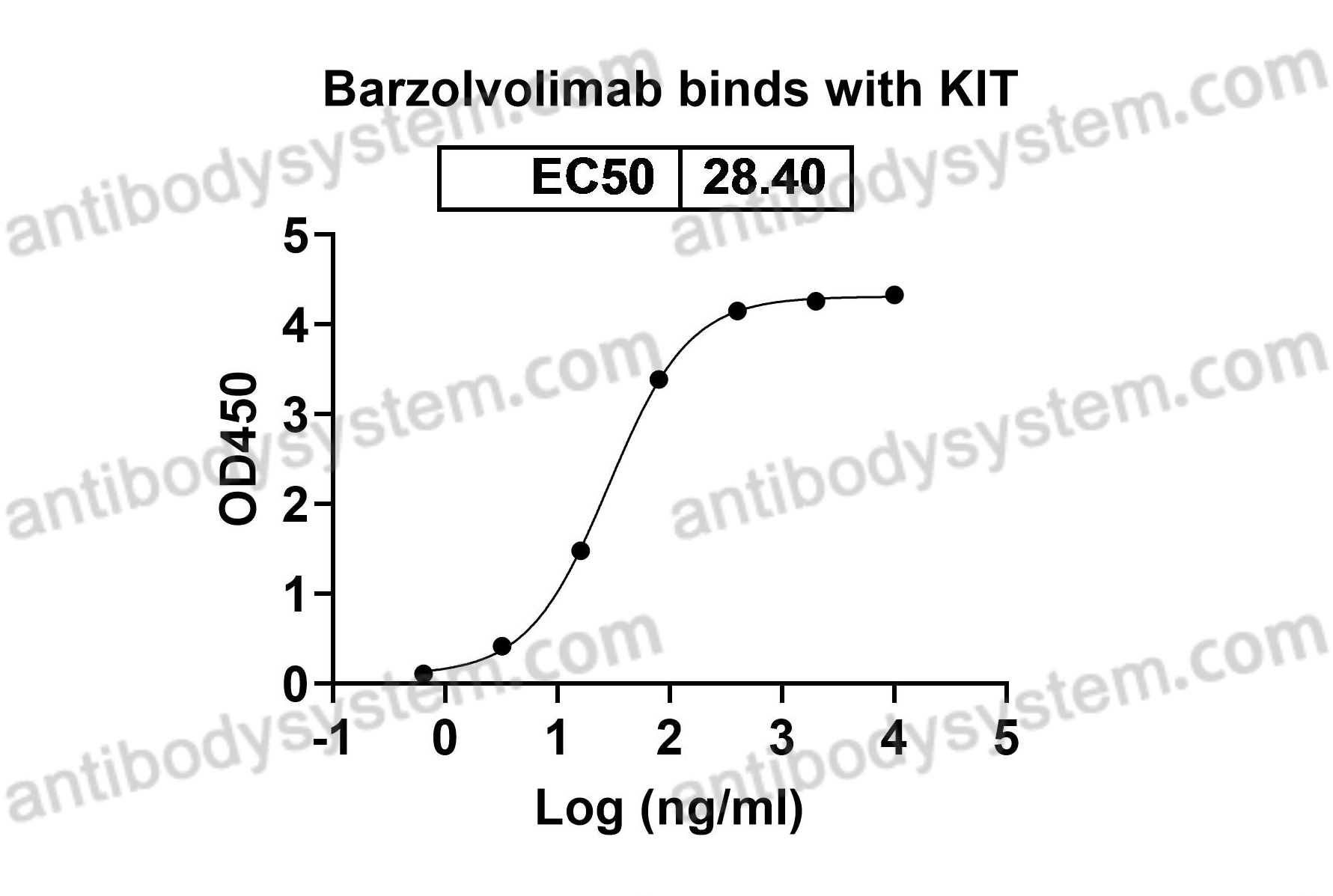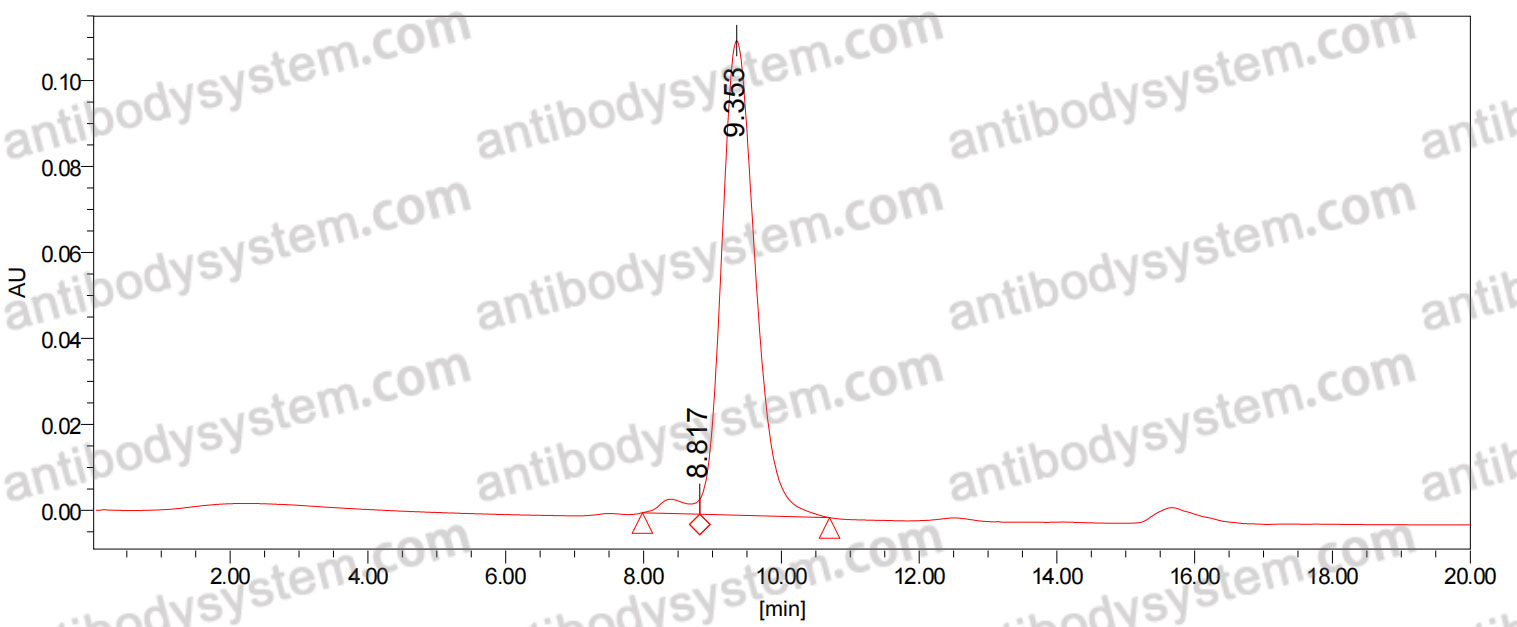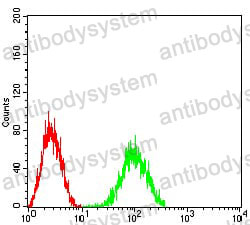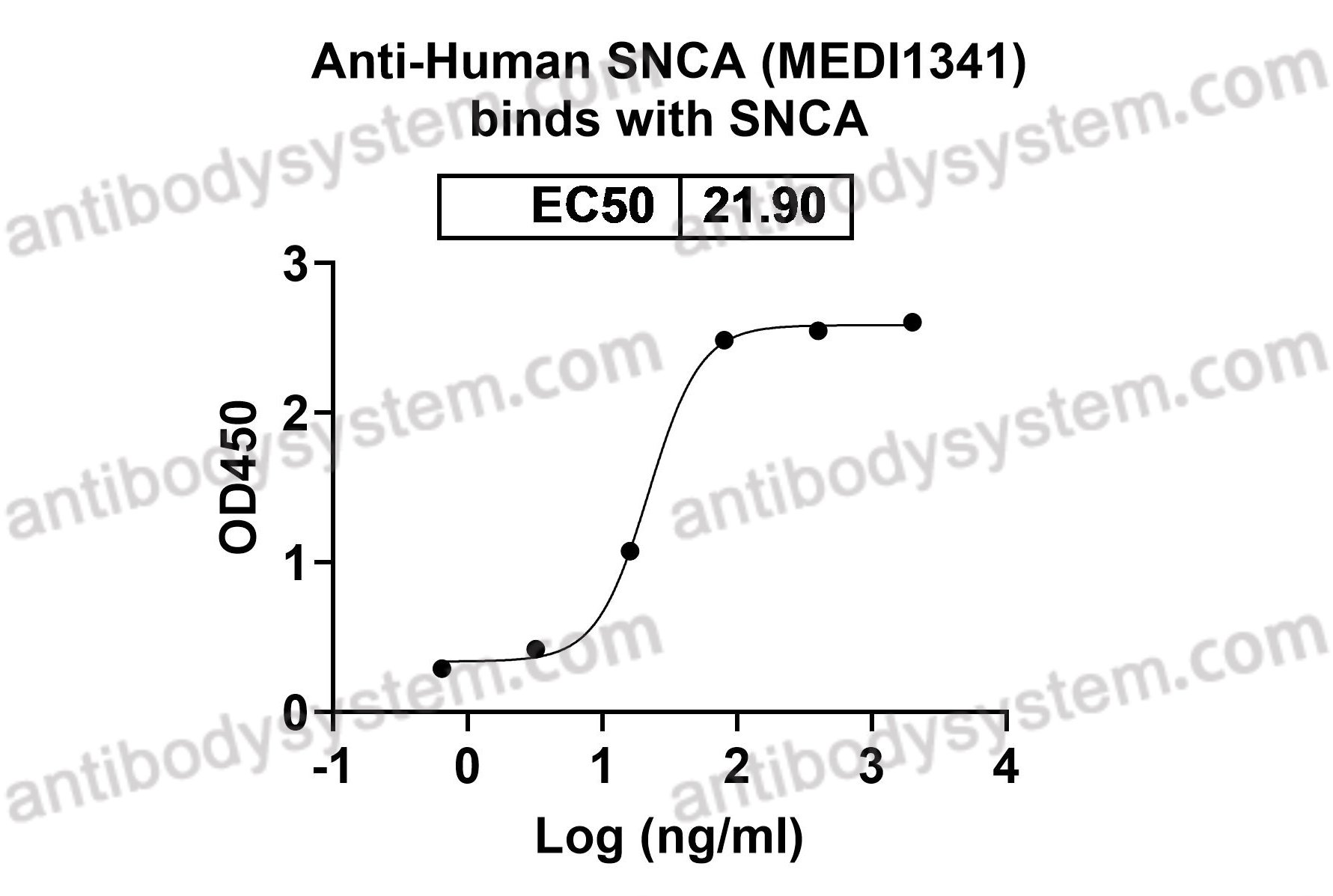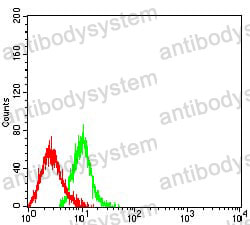Catalog No.
DHC83101
Expression system
Mammalian Cells
Species reactivity
Human
Host species
Chimeric
Isotype
IgG1-kappa
Clonality
Monoclonal
Target
Mast/stem cell growth factor receptor Kit, p145 c-kit, Tyrosine-protein kinase Kit, v-kit Hardy-Zuckerman 4 feline sarcoma viral oncogene homolog, KIT, PBT, Piebald trait protein, Proto-oncogene c-Kit, SCFR, CD117
Concentration
1.47 mg/ml
Endotoxin level
Please contact with the lab for this information.
Purity
>95% as determined by SDS-PAGE.
Purification
Protein A/G purified from cell culture supernatant.
Accession
P10721
Applications
Research Grade Biosimilar
Form
Liquid
Storage buffer
0.01M PBS, pH 7.4.
Stability and Storage
Use a manual defrost freezer and avoid repeated freeze-thaw cycles. Store at 4°C short term (1-2 weeks). Store at -20°C 12 months. Store at -80°C long term.
Alternative Names
CDX-0159 CAS: 2438203-51-9
Clone ID
Barzolvolimab
Depletion of mast cells with barzolvolimab, an anti-KIT antibody, does not affect mast cell progenitors., PMID:40439351
Anti-KIT Barzolvolimab for Chronic Spontaneous Urticaria., PMID:40415544
New and Emerging Biologics and Jak Inhibitors for the Treatment of Prurigo Nodularis: A Narrative Review., PMID:40282922
Update on the Treatment of Chronic Spontaneous Urticaria., PMID:40074986
Therapies for Chronic Spontaneous Urticaria: Present and Future Developments., PMID:39598410
Emerging Therapeutics in Chronic Urticaria., PMID:38937013
Chronic Prurigo., PMID:38722190
Prurigo nodularis: new insights into pathogenesis and novel therapeutics., PMID:38345154
Inhibition of KIT for chronic urticaria: a status update on drugs in early clinical development., PMID:37897679
Chronic Prurigo Including Prurigo Nodularis: New Insights and Treatments., PMID:37717255
Anti-KIT antibody, barzolvolimab, reduces skin mast cells and disease activity in chronic inducible urticaria., PMID:36385701

